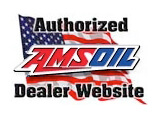AMSOIL’s line of synthetic lubrication products represents the finest level of protection you can buy for your motorized equipment.
After 20 years in the business, Dave Consalvo is your key person to ensuring you get the right product for the right application.
News and Updates
The Removal of Sludge From Your Engine
Sludge presents an enemy to peak engine performance and vehicle longevity,
02 April, 2024Motorcycle Peak Riding Season
Motorcycles are frequently ridden in stop and go traffic during hot summer
28 March, 2024Extra Protection for High-Mileage Engines
Amsoil engineered 100% Synthetic High-Mileage Motor Oil to deliver purpose-
27 November, 2023
FIND THE RIGHT OIL
Not sure which oil you need? Look up your vehicle in our product guides.
FREE CATALOG
Browse the full line of premium AMSOIL products in the latest factory direct catalog.
LET DAVE FIND YOUR BEST OPTION
With over 15 years of experience, Dave will find the right solution for you. 978-256-3695.

























